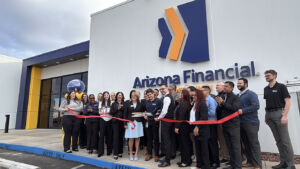In the past when you scheduled a business meeting, you had pizza delivered or ordered sandwiches from the local deli. Sometimes you splurged by taking the group out to a local restaurant. It was never a concern about what was offered or what was on business meeting menus or served to the group.
As someone in charge of planning a company function these days, however, ignoring the needs of your employees or clients could potentially send some to the hospital or break a sale. David learned this when he was preparing for a lunch presentation and had a couple of new consultants at his client’s firm.
He had started a practice of sending the standard, gluten-free and vegan menus to his clients “to let people figure out what they would like to eat instead of getting stuck with another round of pizza or sandwiches.” He had heard one of the new guys was hard to get along with. Little did David know, that by sending over different menus, he was able to meet the new person’s dietary needs and that a consultant didn’t have to sit through the presentation watching everyone enjoy their lunches while he was “eating his second piece of lettuce.”
Sending over the multiple menus for him to choose from also allowed a relationship to begin on a positive note and he has since worked with him on other projects and has shared some of his own experience with food issues that his daughter was being tested for—win-win all the way around.
The number of people adhering to specific diets these days is increasing daily. From paleo to keto, food allergies to diabetes, celiac disease to veganism, cancer to halal, your employees, customers and potential clients may well be following a special diet.
Reasons for the increase in requests include:
• Rotating location of events to different parts of the world
• Increased international attendance and diverse, global workforces
• Increase in chronic disease and aging workforce
• Kosher attendees are asking for accommodation
• Rise in food allergies
• More attendees are choosing to eat vegetarian or vegan
• Diverse religious dietary requirements
• Growing acceptance of alternative diets
• General desire to eat healthier
No matter the reason, understanding and accommodating the dietary needs of your employees and customers should be considered standard practice for anyone planning a meeting or event. But with so many requests, how do you if know if you can serve this and not that?
1. Know the Needs
Managing the multitude of requests can be challenging at best, but understanding the basic guidelines for the most prevalent requests can go a long way.
• Food Allergies
More than 120 foods are known to cause allergic reactions, but eight foods cause 90 percent of all allergic reactions—milk, egg, wheat, soy, tree nuts, peanuts, shellfish and fish—by touching, ingesting, or inhaling. Food allergies can be fatal, so it’s important to take these requests seriously, and ensure your catering partners do too.
• Medical Conditions
There are a variety of other medical conditions that are managed through diet—celiac disease/gluten sensitivity, diabetes, Crohn’s, diverticulitis, heart disease, cancer and obesity. Although they may not be immediately life threatening like food allergies, they can trigger serious health issues that take your attendees away from your meeting.
• Lifestyle Preferences
More than 27 million people follow a vegetarian-inclined diet. Millions of others are eating gluten-free, paleo, raw, macrobiotic or vegan. The reasons for doing so can be personal, moral or health-related. No matter what the reason, meeting hosts need to appreciate and accept their preferences.
• Religious & Cultural Practices
One third of the world population follows a religious-based diet, so knowing attendee demographics is important. Some may choose to eat vegan or vegetarian when traveling, but others may require a certified meal. And some religious diets vary based on the calendar and the time of day.
2. Planning is Critical
Managing food restrictions and needs can be cumbersome, but a little extra planning and forethought can go a long way.
Ask your attendees about their dietary needs when inviting them. If you have online registration, be specific by using check boxes—not fill-in-the-blank boxes—which leave room for assumptions that could potentially be fatal. Otherwise, give attendees a way to inform you of their needs.
Talk to your attendees. If you have questions about their needs, call them. Put them in touch with the chef or restaurant directly. They’re the experts on their own needs, so who better to ask? Maybe they could even help plan the menu for everyone.
Communicate with your caterer(s) in advance—not hours, but at least a week before, if possible. The earlier your catering partner knows, the more time they have to incorporate the needs into the overall menu or provide quality options. Also ensure the necessary safety steps are being taken in preparing, cooking and serving food. Cross-contact in the kitchen and the front of the house can be fatal.
3. Offer Fresher, More Nutritious Options
While chain restaurants are now required by law to provide nutrition information about the food they sell, ordering food from a local restaurant that makes their food from scratch allows for easier identification of ingredients and to make any necessary adjustments for dietary needs.
4. Foster an Inclusive Environment
The ideal inclusive environment has long been meant to allow individuals to bring their true and authentic selves to work. However, most inclusion efforts do not address dietary needs.
For example, an Indian man accepted the chicken salad plate presented to him at lunch because he did not want to ask for a vegetarian meal. Instead he ate the romaine lettuce the chicken salad was placed on. John, a vegan who was interning at a company who offered him a job upon graduation was partaking in the intern pizza lunch. When he was not eating the pizza, he was asked why not. Instead of asking if a vegan pizza could be ordered, he ate his vegan protein bar.
5. No Longer Just a Matter of Good Guest Relations
In 2008, the Americans With Disabilities Act (ADA) was amended to clarify and broaden that definition of the word “disability,” thus expanding the number and types of persons protected under the ADA, including individuals with food allergies, celiac disease, and other conditions that affect their ability to eat.
At meetings that are either a requirement or benefit of employment, a reasonable meal accommodation must be provided to meet an employee’s dietary need(s) or it can be seen as discriminating against the employee for their disability. The ADA protection also extends to any events held in places of public accommodation, such as restaurants, hotels, convention and conference centers.
In conclusion
As a meeting host, you’re responsible for bringing people together from around the world to share an experience. While at your meeting, they are in, in an essence, under your care. You have taken on the commitment to plan their meals and their experience. And, as such, you’re responsible for the health, safety and well-being.
By taking a few extra steps to ensure their personal enjoyment, safety and health is valuable and showcases your professionalism.
As founder and chief connecting officer of Thrive!, Tracy Stuckrath helps organizations worldwide understand how food and beverage affects risk, employee/guest experience, company culture and the bottom line.



